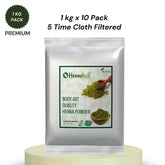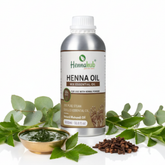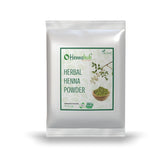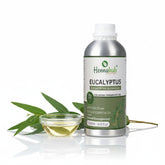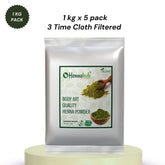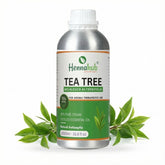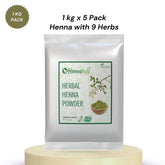The History of Henna: Exploring Cultural Origins and Historical Significance
The History of Henna: Exploring Cultural Origins and Historical: Significance Henna, a natural dye derived from the leaves of the Lawsonia inermis plant, has been used for centuries across various cultures for body art, hair dyeing, and medicinal purposes. The story of henna is rich with tradition, artistry, and cultural significance, weaving its way through ancient civilizations and modern practices. In this blog, we delve into the fascinating history of henna, exploring its cultural origins, historical significance, and contemporary relevance.

Ancient Beginnings
The earliest evidence of henna use dates back to ancient Egypt, around 3400 BCE, where it was employed for mummification and ceremonial purposes. The reddish-brown dye was used to adorn the bodies of the deceased, symbolizing protection and purification. Henna was also popular among Egyptian women, including Cleopatra, who used it to enhance their beauty.

Spread Across Cultures
Henna's use spread from Egypt to various parts of the Middle East, North Africa, and South Asia. It became an integral part of cultural and religious ceremonies in these regions. In India, henna, known as mehandi, has been used for over 5,000 years. The intricate designs applied during weddings and festivals symbolize joy, beauty, and spiritual awakening.

Henna in South Asia
In South Asia, particularly in India, henna has a deep-rooted cultural significance. The Rajasthani henna, renowned for its superior quality and vibrant color, is highly sought after. Rajasthani mehandi is an essential element of bridal adornment, where elaborate designs are applied to the hands and feet of brides. This tradition is believed to bring good luck and prosperity.

Henna in the Islamic World
Henna also holds a special place in Islamic culture. It is used during Eid celebrations and other religious festivals. The Prophet Muhammad is said to have used henna, and thus, it is considered a blessed and auspicious practice. Henna application is a communal activity, bringing people together in joy and celebration.

Henna in Modern Times
Today, henna has transcended cultural boundaries and gained global popularity. It is celebrated as a form of temporary body art, with people from diverse backgrounds embracing henna tattoos and designs. The demand for high-quality henna products has led to the rise of specialized henna suppliers and exporters, such as HennaHub India, which provide the best henna powder sourced from the fertile lands of Rajasthan.
The Henna Industry
The henna industry is thriving, with numerous cities known for their production and export of henna. Henna City, a term often used to describe hubs of henna production, highlights areas where this age-old tradition continues to flourish. Rajasthani henna, in particular, stands out for its natural purity and rich color, making it a preferred choice for henna enthusiasts worldwide.

Choosing the Best Henna Powder
When selecting henna products, it is crucial to opt for the best henna powder available. Look for suppliers who provide natural, chemical-free henna, ensuring safety and quality. HennaHub India, a leading henna exporter, prides itself on offering premium Rajasthani mehandi that delivers outstanding results.

Embracing Henna Traditions Today
In contemporary times, henna's versatility extends beyond traditional ceremonies. It has found a place in modern beauty and wellness routines, from natural hair dye treatments to henna tattoos as a form of artistic self-expression. The demand for organic and chemical-free beauty products has further boosted the popularity of henna, making it a preferred choice for those seeking natural alternatives.
Henna in Western Culture
Western cultures have increasingly embraced henna, especially in the realm of fashion and festivals. Music festivals like Coachella have popularized henna tattoos as a trendy and temporary form of body art. Celebrities and influencers often sport intricate henna designs, sparking interest and appreciation among their followers. This cultural exchange has led to a greater understanding and respect for the traditional roots of henna.

Health Benefits of Henna
Beyond its aesthetic appeal, henna offers various health benefits. It has been used traditionally to treat skin conditions, such as eczema and psoriasis, due to its anti-inflammatory and cooling properties. Henna is also known for its conditioning effects on hair, helping to strengthen and add shine, while also being a natural remedy for dandruff and scalp health.

Sustainable Henna Practices
As the popularity of henna grows, so does the importance of sustainable and ethical sourcing. Reputable henna suppliers and exporters, like HennaHub India, emphasize the significance of fair trade practices and sustainable farming. By supporting these practices, consumers can ensure that their henna products are not only of high quality but also ethically produced, benefiting local communities and the environment.
Tips for Using Henna
- Preparation: For the best results, mix henna powder with lemon juice or tea to form a smooth paste. Allow it to sit for several hours or overnight to release the dye.
- Application: Apply the paste to clean, dry skin or hair. For intricate designs, use a henna cone or applicator bottle.
- Setting: Let the henna paste dry completely, and keep it on for several hours. The longer it stays on, the deeper the color will be.
- Removal: Gently scrape off the dried henna paste and avoid washing the area with water immediately. The color will continue to develop over the next 24-48 hours.
- Aftercare: Moisturize the henna design with natural oils like coconut or olive oil to prolong the stain’s longevity.
Conclusion
Henna's journey from ancient traditions to modern-day trends showcases its timeless appeal and cultural significance. Whether used for ceremonial purposes, as a natural beauty product, or as a form of artistic expression, henna continues to captivate and inspire people around the world. By choosing the best henna powder from reputable suppliers like HennaHub India, you can honor this ancient practice while enjoying its myriad benefits.
Explore the rich history and vibrant culture of henna, and let this natural dye add a touch of tradition and beauty to your life. Whether you are in a bustling henna city or a quiet corner of the world, the legacy of henna connects us all in a shared celebration of art and tradition.
#HennaHistory #RajasthaniHenna #BestHennaPowder #HennaSupplier #HennaExporter #HennaHubIndia #HennaCity #RajasthaniMehandi #NaturalHenna #HennaDesigns #HennaTraditions #HennaTattoos #SustainableHenna #CulturalHenna #HennaArt #HennaBenefits

